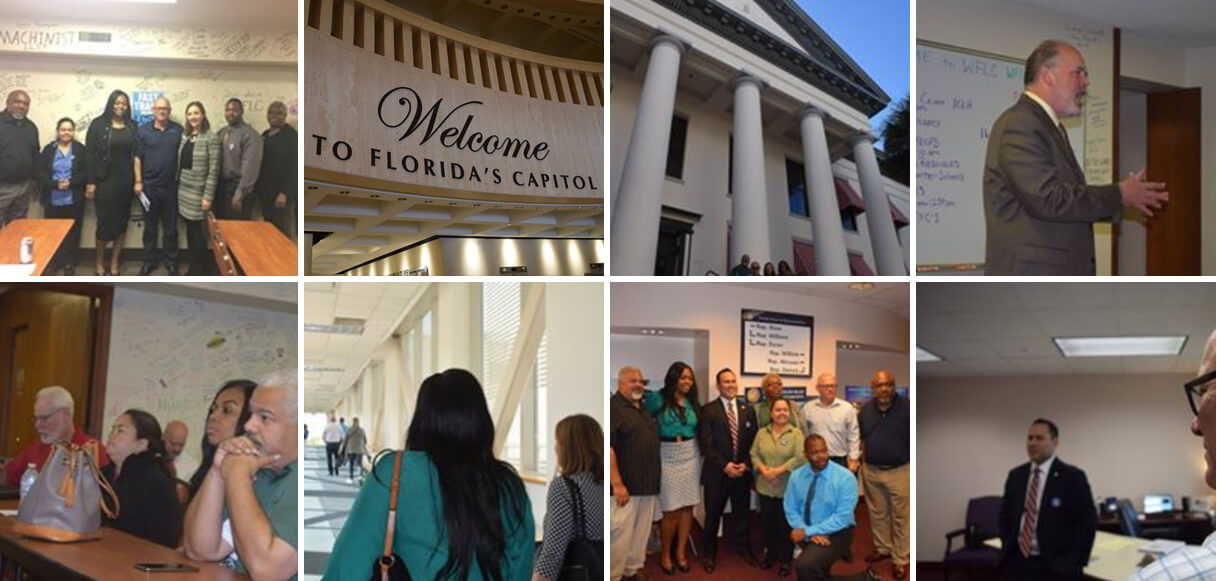TALLAHASSEE, Florida – With Florida’s 2017 legislative session passing the halfway mark, many critical issues facing AFSCME members remain in flux.
While the attacks to retirement security, health care and even the very right to a democratic voice on the job continue, the weeks of incredible outreach over the phones, in person and at events around the state by AFSCME members and allies have had a real impact.
The Senate’s budget includes money for state employee pay raises for the first time in a decade. Attempts to preempt local wage and safety ordinances have been slowed. And there’s much more.
In early April, seven AFSCME leaders from Local 199, Local 1542 and Local 3292 in Miami-Dade County participated in the Florida AFL-CIO’s Working Families Lobby Corps to make sure all working people in the state are represented fairly and aren’t used as pawns by the Sunshine State’s power brokers.
“Laws can be pushed through the legislature that affect our everyday lives with hardly any discussion by the people being impacted,” said Jared Crawford, deputy clerk of courts in Miami-Dade County. “We have to stay involved during the legislative session to actually hold them accountable for the promises they make during the election.”
Throughout the week, the members attended hearings and spoke out on issues and met with elected officials to advocate for legislation affecting them and their coworkers. For example, Fannie Steele and other Local 199 participants spoke about the need to reclassify certain positions as “special risk” due to the duties performed and work environment.
The AFL-CIO made sure members worked closely with Lobby Corp participants from other unions around the state.
“Florida is a big, diverse state, but this experience shows there is something that unites us all – there are more demands than budget dollars to meet them,” said Steele, a system analyst and computer program for the Miami-Dade Clerk of Courts. “If you are not talking to your elected officials about what you and your coworkers need, somebody else is arguing they need that piece of the budget pie.”
